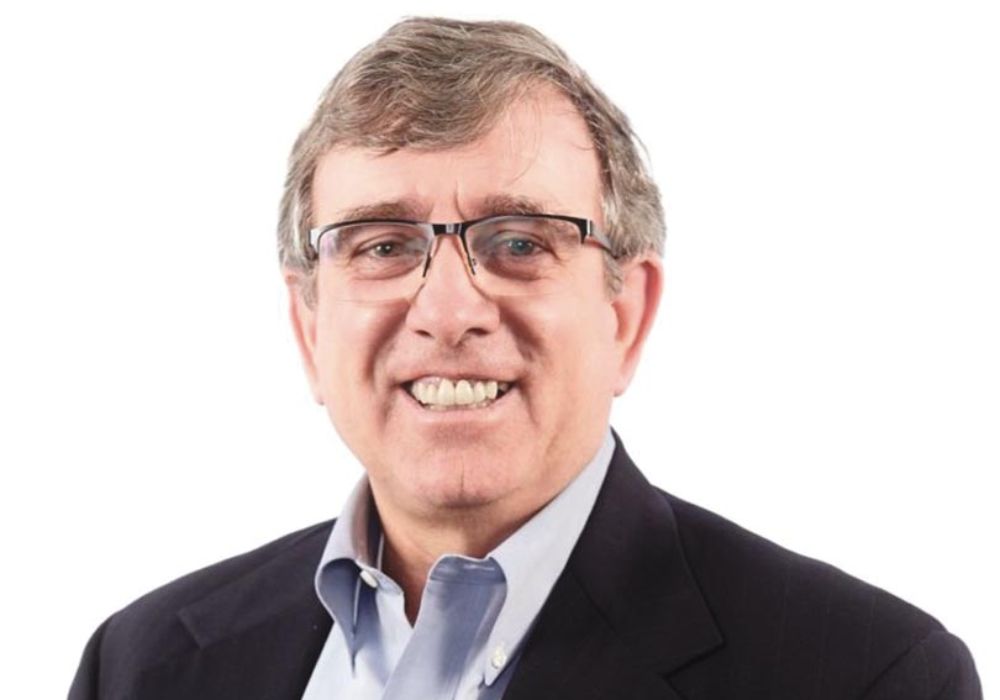
Forty-five years ago, on the morning of my graduation, I stood in Pennsylvania Hall and was commissioned a second lieutenant in the United States Army. That day, I had no idea what the journey I was embarking on would bring. All I had were goals and dreams and the knowledge and hope that between my Gettysburg experience and life up to that point that I was prepared. I knew going forward it would be important to listen, keep an open mind, and ask a lot of questions.
While growing up along the New Jersey shore, I played sports and always held various jobs throughout high school and college. I worked in construction, at a car wash, as a beach cop, in my fraternity house, in an apple orchard, and, yes, even in a nightgown factory. Between those jobs, some student loans, and ROTC, I paid my way through college.
As a student, I was an economics major, participated in ROTC, attended Airborne School, served on the Honor Commission, and joined Sigma Chi.
I loved math and science and had an interest in history, world events, and politics. I strongly believe that to know where we want to go as a society, we need to know where we have been and learn from the past. I often found historical figures—like Abraham Lincoln, who fought to preserve and keep a dream alive—and many others who inspired me and set examples for how I might one day handle a situation. I drew strength from their experiences and learned the qualities and traits of their leadership. I also met Ann, my wife and best friend of 47 years, here. She allowed me the opportunity to pursue my career while raising a family with three kids and soon to be six grandkids.
As my career developed, I often thought back to those formative years and began to appreciate the many men and women who played a role in mentoring and guiding me. Some were teachers and coaches who saw something in me and challenged me to achieve more. They include Gettysburg College Dean Frank B. Williams, English Prof. and track coach Mr. Bruce Held, and my ROTC instructor, CSM Clifford Fuller. Others were during my career, including Maj. Wayne Murphy and Mr. Richard Sandberg. They were true mentors who taught me how to critically think, the value of team cohesion, humility, and to choose the harder right.
After graduation, I went on active duty in the U.S. Army as a Corps of Engineers officer, leading soldiers and managing construction projects. I was a second lieutenant helping build the Boy Scout Jamboree Camp, a company commander of 250 soldiers, and a captain in the role of liaison to the New York District Corps of Engineers Office working on the renovation of the existing World War II barracks and facilities, the latter in support of the reactivation of the 10th Mountain Division. In all, it was an impactful and formidable experience for me. However, I then made the difficult choice to leave the Army and start my business career.
I began my journey in health care, leading to roles from sales all the way to CEO with DIANON Systems, Neuromedical Systems, Modis, Poplar Healthcare, and PathAI. Along the way, I helped launch a bladder cancer detection test, introduced digital cytology and histology scanning and AI systems, and was CEO during the COVID-19 pandemic.
Every step throughout my career has been a building block. I will soon be 67, and as I always tell people, I still don’t know what I want to be when I grow up. That’s because I went to a school like Gettysburg to learn how to learn. I was also never afraid to accept challenges and learned from my failings as much if not more than from my successes.
To my fellow Gettysburgians, here are a few of my life’s key lessons—money follows success; success doesn’t follow money. Do what is in your heart and best for your career, and don’t chase the almighty dollar—money will follow. Lead by example, have humility, and inspire others. Be cautious in the best of times and optimistic in the worst—and remember to pay it forward.
Leadership is within you—you just need opportunities to bring it out.
by Jim Sweeney ’80
Posted: 08/27/25